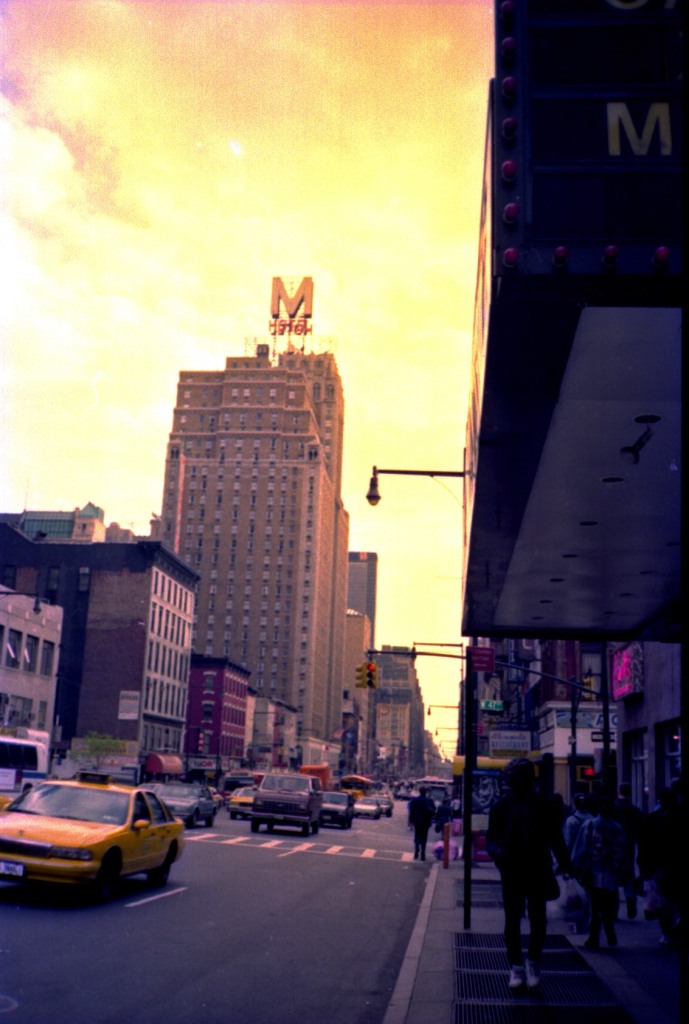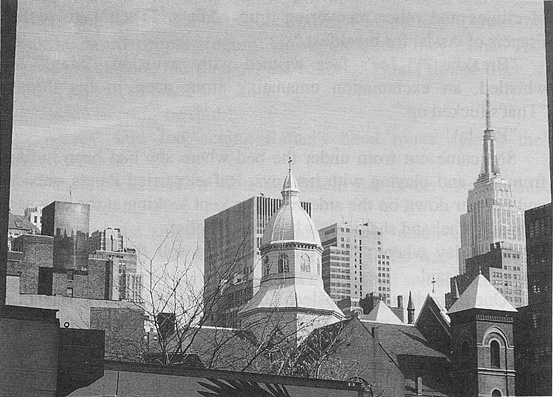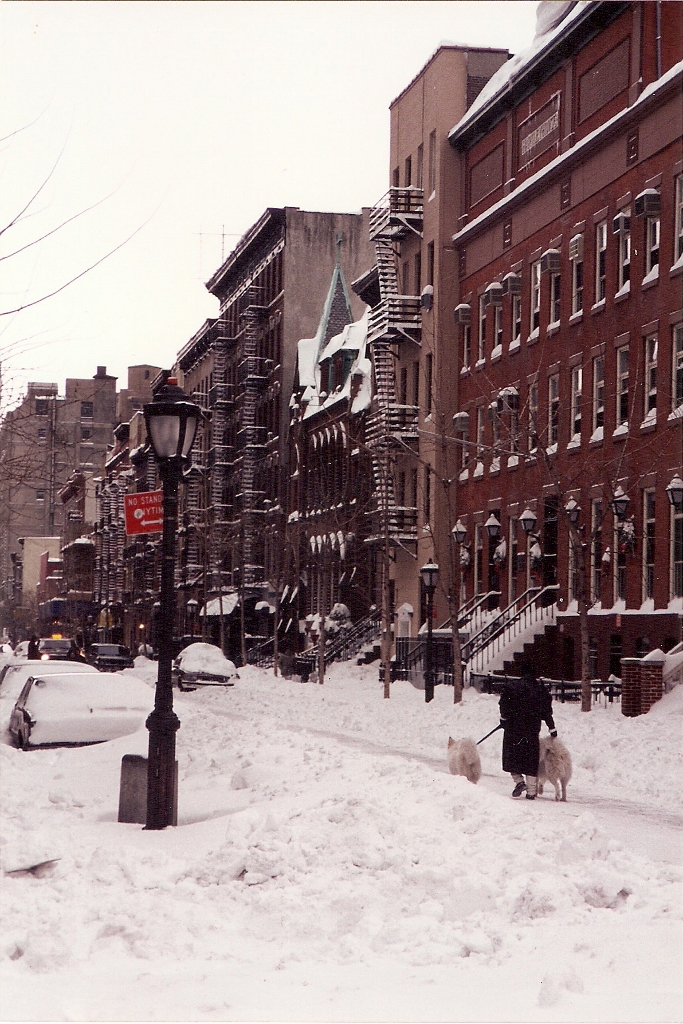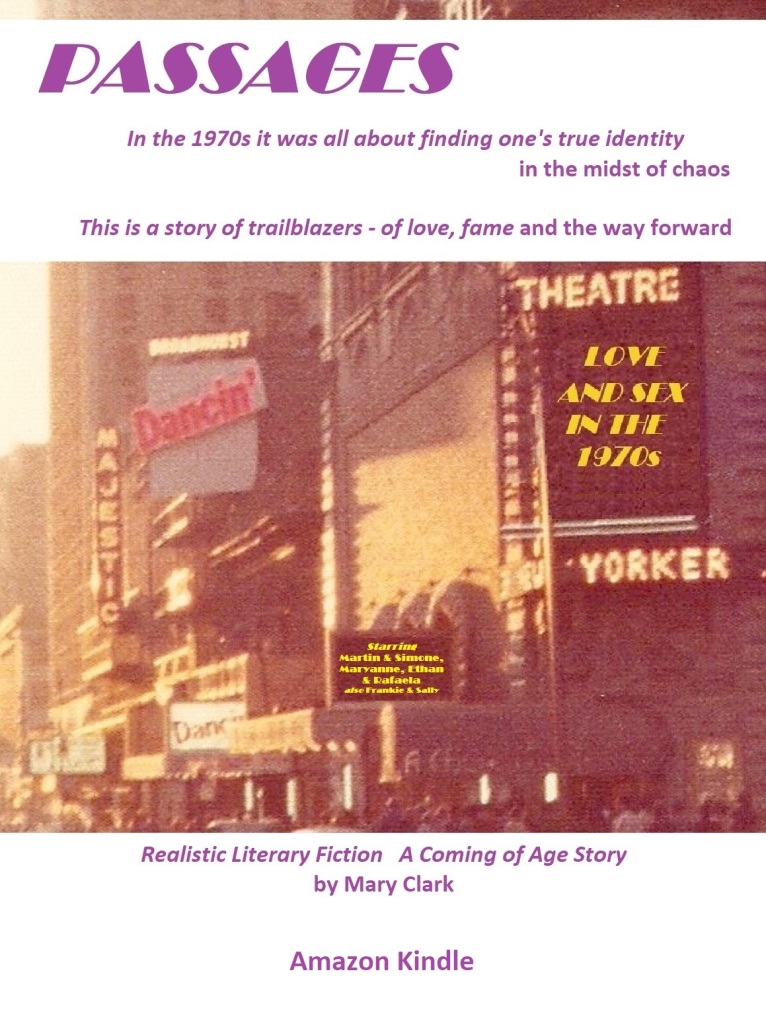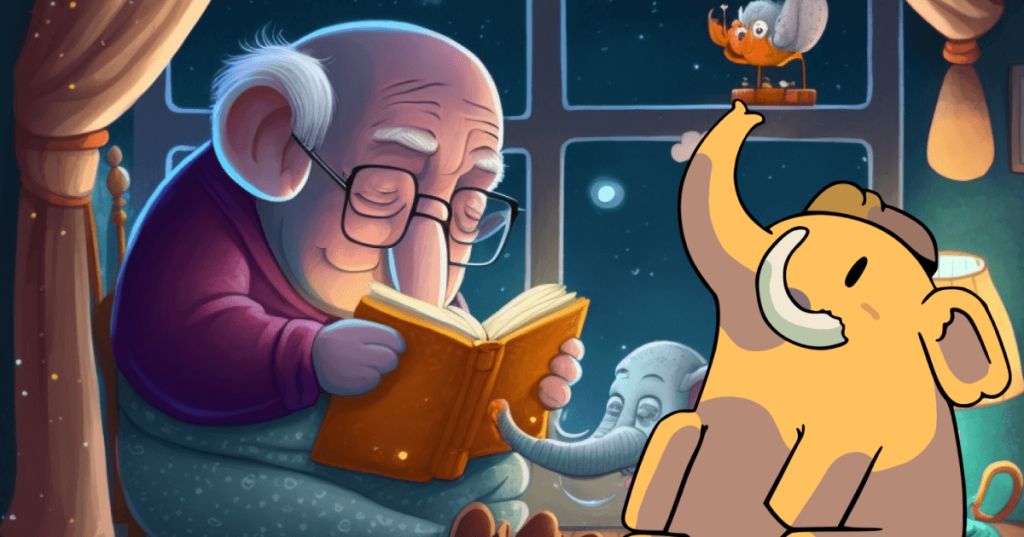Recently I updated my book Community: Journal of Power Politics and Democracy in Hell’s Kitchen on Amazon and Draft2Digital with more than 20 photographs of my life in New York City, along with editing and a few additions. Here are two photos from the book.

That’s me and my first cat in NYC, 1982.

David Dinkins, who would later be elected mayor, and Peter Yarrow singing and playing guitar, on a campaign bus on Ninth Avenue near West 42nd Street, NYC, 1985. Photograph by Mary Clark.
When I lived in New York, the world came to me. Now that I am old and gray and live far away, I don’t meet new people and have adventures much anymore – except in books. Here are some of the Literary Trips I took in 2023.

Landlines: The Remarkable Story of a Thousand Mile Journey Across Britain, by Raynor Winn. I hiked along with her and her husband through dust and rain, across bogs and up mountains, immersed in the environment, and appreciating her humor and perseverance. After this book, I read her first book, The Salt Path, about their walk along the South West Coast Path in southern England. This book will be a classic, I think. Her second book, The Wild Silence, which I’m reading now, is about the time after that walk.
The Last Wilderness: A Journey into Silence, by Neil Ansell. A trek through the “Rough Bounds” of Scotland. Wetness abounds whether rain or “lochan” or the sea. This book may be for afficionados of nature writing, but I liked it for its straightforward approach. Ansell gives the reader a new view of what we call wilderness, how little of it is really left, but also its resilience.

The Seed Keeper, by Diane Wilson. The story of the Dakota (Dakhóta) people who lived in Minnesota, specifically, of Rosalie Iron Wing, a girl who was placed in foster care with white families after her father’s death, and later married a white farmer. She found seeds in his cellar, which had been kept by his mother. A parallel story tells of her female ancestors, how they and their families were removed from their land and taken west to reservations. The women kept the seeds so they could plant them wherever they went, an act of survival. An informative story, with occasional pedantic passages, but one worth reading. Foreword by Robin Wall Kimmerer.
Showboat and Fanny Herself, by Edna Ferber. Showboat is not a novel in the usual sense, it meanders about, much like the Mississippi River it takes place upon. It is unforgettable. And I’d take that trip again! Fanny Herself is an expose of being Jewish in America, and as with Showboat, of the diversity and tensions of American life. Great trips through the Midwest. Both books are important documents of this country, and of the city of Chicago, as is another of her books, So Big.
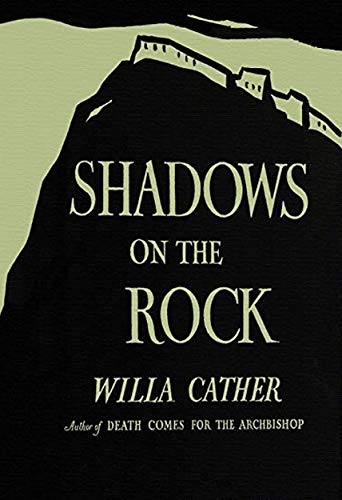
Shadows on the Rock, by Willa Cather. A lovely book, a mood poem that presents a simple story of a father and daughter and the history of Quebec City. Although there’s little action, her writing carried me along. Weather is the great character here. I felt completely immersed in this place. It’s as if I’ve been to that part of Canada in the 1690s.
Take What You Can Carry: A Novel, by Gian Sardar. A naïve American woman travels with her Kurdish boyfriend to Iraq in the early days of Saddam Hussein’s rise to power. She begins to realize the danger they are in but tries to keep her sense of normal life as the Kurdish village and her boyfriend’s family come under attack. She forms a bond with a young, orphaned girl. He decides to stay to protect his family, while she returns to the U.S. That’s not how it ends, but no spoilers!
No Longer at Ease, by Chinua Achebe. I’ve read all three books of the African Trilogy now. The first one, Things Fall Apart, is the most interesting as it describes life before and just as European colonization begins. He gives us a clear picture of the transformation across time. The feeling of disconnection is palpable in his main characters.
Shadows on the Grass, by Isak Dinesen. Africa from the colonial point of view, but with an outlier’s sense of things. She buys into some stereotypes, but not the one that says this is really her land. She knows she can never physically return, but her heart and soul remain there. This short book wraps up her relationships with people she knew when she had a farm in Kenya. Dinesen (Karen Blixen) is one-of-a-kind, giving us some of our most illuminating word adventures. Out of Africa is a classic, but my favorite book of hers will always be Seven Gothic Tales.

Another book by a strong-willed woman, African Stories, by Doris Lessing, is also worth reading for its beautiful language and point of view, which can be juxtaposed with the beautiful language and different points of view of native African writers.
How Beautiful We Were: A Novel, by Imbolo Mbue. People in a fictional African village struggle to survive as their land and crops are destroyed and the water and air are polluted by an American oil company. Those who protest or dare to speak to authorities disappear; some are imprisoned, and others executed by the African government which is in cahoots with the oil company. The villagers meet with representatives of the oil company but attempts to resolve issues are ultimately undermined by the company, the government, and a few of their own leaders. Getting their story out to the world seems the only way. Several people risk everything to save the village, but it may be too late.

Three Girls from Bronzeville: A Uniquely American Memoir of Race, Fate, and Sisterhood, by Dawn Turner. Three black girls from the Chicago projects become friends. Their journeys begin to diverge as they grow into adulthood. One girl pursues an education and a career, while the other two have trouble finding their way. They rely on one another for the kind of support only found among friends. There’s a history of the area, along with descriptions of the projects as new and later falling into disrepair as the social fabric also disintegrates, which is woven into the story.
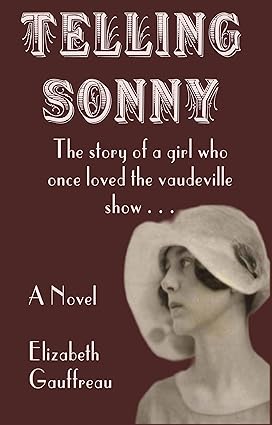
Telling Sonny: A Novel, by Elizabeth Gauffreau. A young woman goes on a journey through the Eastern United States, especially New England, with her new husband who performs in a theater group. This is a time when carnivals and traveling theater were the only entertainments available to people. Train stations, hotels, and theaters form her life of passing through. Everything is transient including her relationship with her husband. He married her out of obligation after basically “taking advantage” (as people used to say, and I add to that, there is and was no sense of guilt) of her one lonely evening. The marriage breaks up; she returns to her little town with a son. What can she tell her son when she learns his father has died?
Not all my journeys were as satisfying. The books I was disappointed in:
Commonwealth, by Ann Patchett. The “secret” is not a surprise, the whole story not that interesting. I think she missed an opportunity to delve into gun violence and mishaps that take so many children’s lives.
Death Comes for the Archbishop, by Willa Cather. This reminds me of a textbook in a history class. For her great work, see her books in the O, Pioneer Series, in particular, My Antonia.
A Sand County Almanac, by Aldo Leopold. I didn’t finish it. Early essays about flora and fauna are good but become repetitive. His ideas about conservation were ground-breaking (ha ha) at the time, but not now.
The Last Gift, by Abdulrazak Gurnah. Again, the surprise isn’t surprising. Depictions of life in his home country are the best parts. I will read another of his books, one set in Africa or Madagascar.
The Magic Kingdom, by Russell Banks. The real story is more interesting. Why he left Carrie Nation out of his fictionalized account is unfathomable. I lived in this area of Florida and knew all along the section he was describing was NOT the one that was bought by the Walt Disney Company. I enjoyed his writing about the land and waterscape of Central Florida. However, the story of the early utopian experiments in America are important to understanding American history. Maybe best to read the original sources?
Wishing everyone a peaceful and prosperous New Year!

